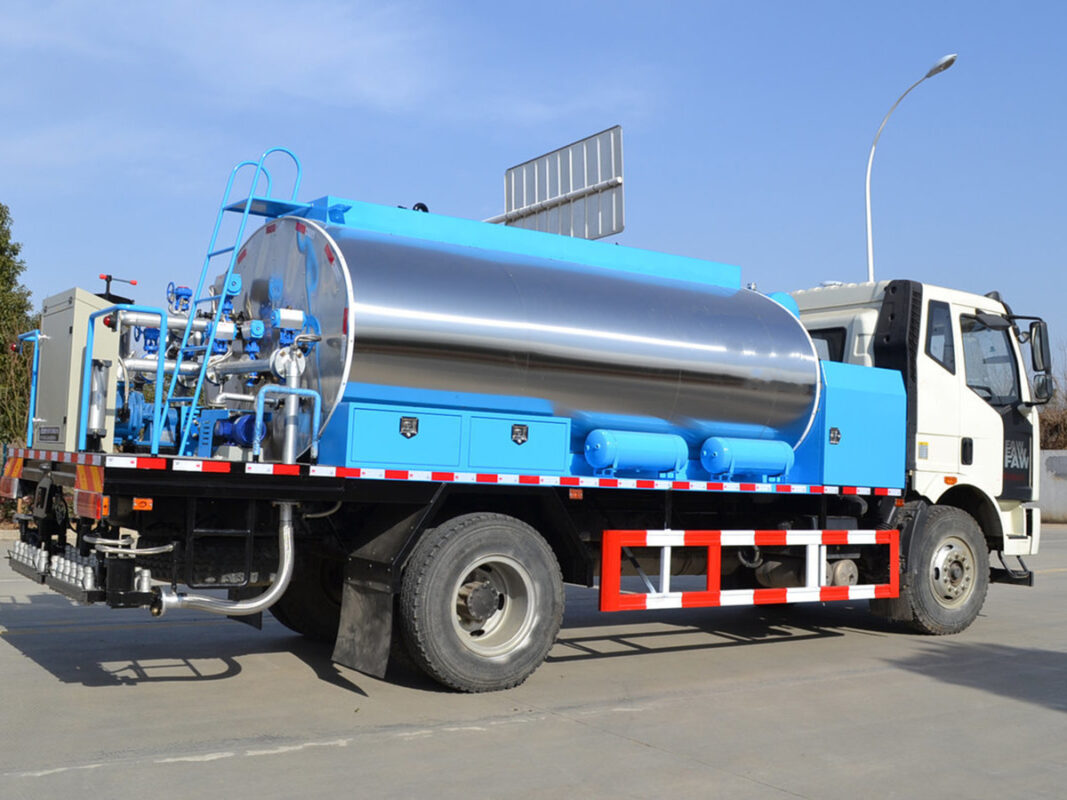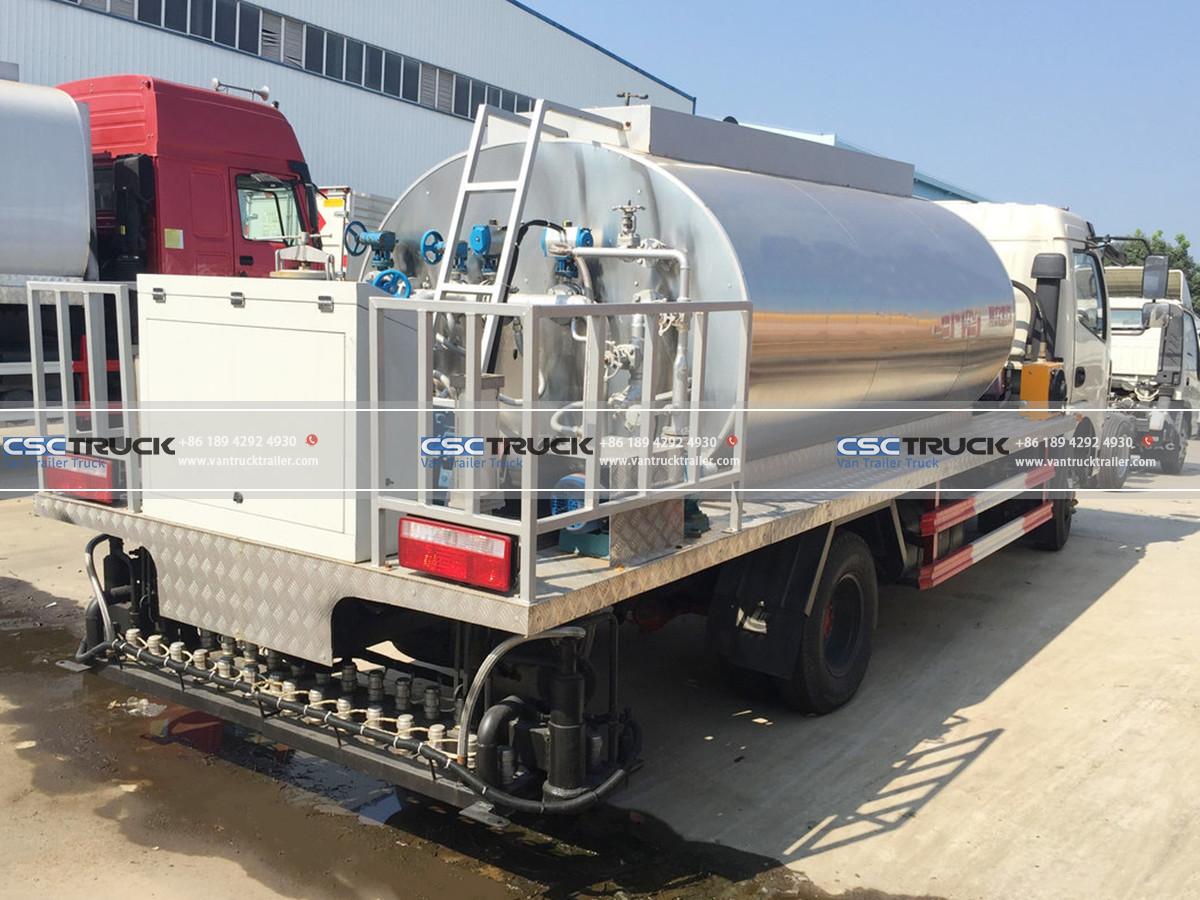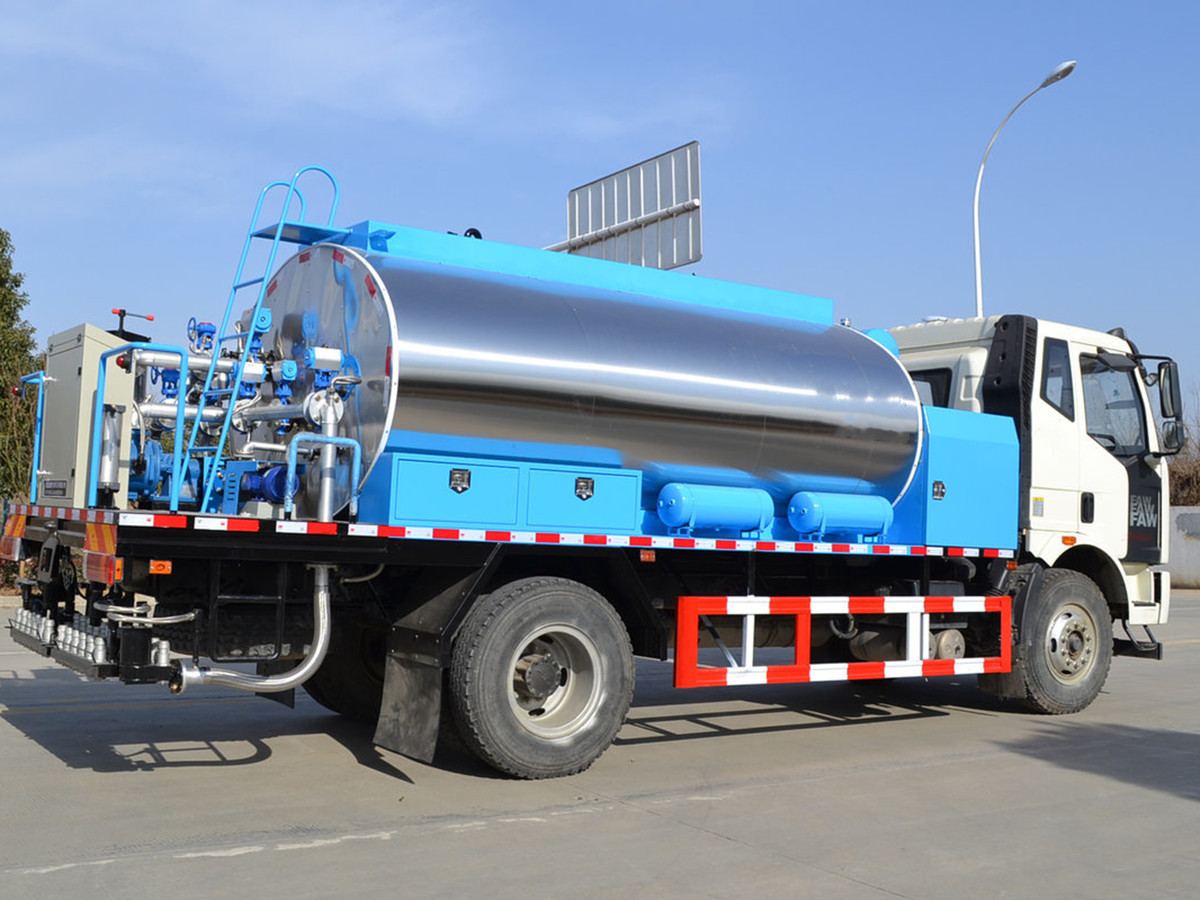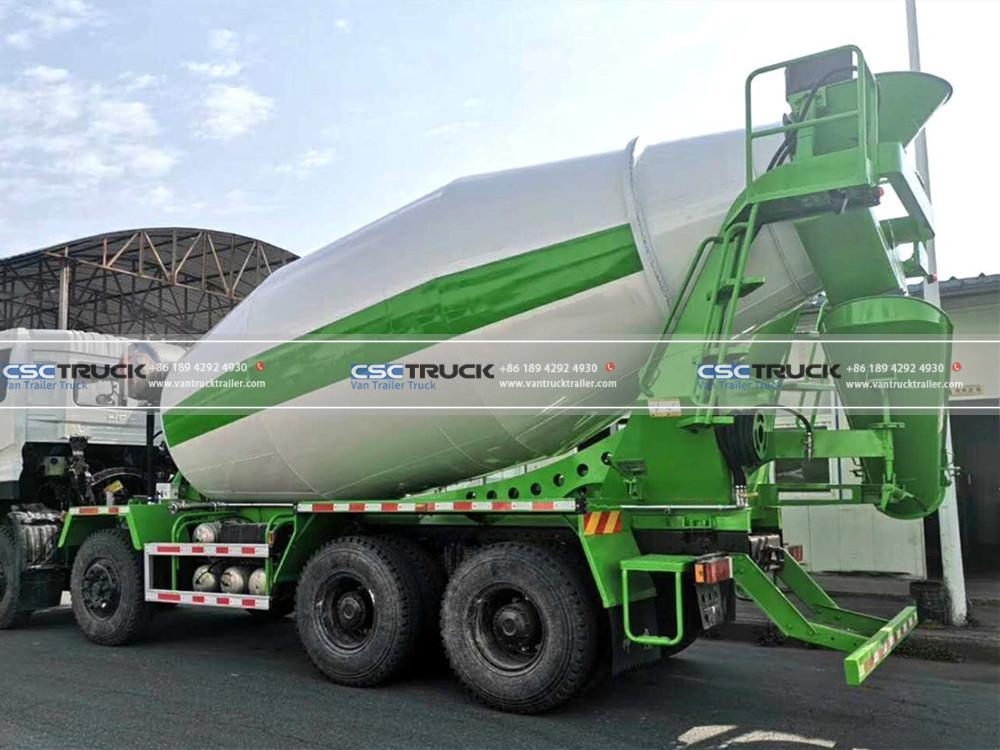Road construction is one of the most vital and complex tasks in infrastructure development. A reliable, durable road network is fundamental to the smooth functioning of society, ensuring that people and goods can move efficiently. One of the key players in road construction, particularly in the paving phase, is the asphalt distributor truck. These specialized vehicles are designed to ensure that asphalt is evenly distributed across the road surface, providing the foundation for high-quality, long-lasting pavement. Without these trucks, the process of road construction would be significantly more challenging, less efficient, and prone to defects.
In this post, we will explore the crucial role asphalt distributor trucks play in the road construction industry, their features, and how they work in conjunction with other vehicles like mixer trucks and dump trucks. By understanding the integral function of these trucks, we gain a deeper appreciation for the sophisticated machinery that makes modern roadways possible.
What is an Asphalt Distributor Truck?
An asphalt distributor truck is a specialized vehicle designed to distribute liquid asphalt evenly across a road surface. This is typically done as part of the process of paving or resurfacing roads, ensuring that the asphalt adheres properly to the surface before being compacted into place. Asphalt distributors are essential for maintaining the quality and durability of the pavement, as an even distribution ensures consistent performance and longevity.
Key Components and Features of Asphalt Distributor Trucks
The asphalt distributor truck is equipped with several components that allow for precise application of liquid asphalt. These trucks feature a tank that can hold thousands of gallons of hot liquid asphalt, a spray bar that evenly distributes the material across the surface, and a system for maintaining the right temperature to keep the asphalt in a workable state. Most models are also fitted with a computerized control system that adjusts the flow of asphalt to ensure uniformity in the application.
What makes asphalt distributor trucks particularly efficient is their ability to apply asphalt at consistent temperatures and in accurate quantities. This is crucial for ensuring that the pavement can bear the required loads without degrading prematurely. The truck’s ability to spray asphalt evenly also prevents issues like uneven paving, which could lead to road defects such as cracks or potholes.
The Importance of Asphalt Distribution in Road Construction
The role of the asphalt distributor truck goes beyond simply delivering asphalt to the road. The process of distributing the asphalt evenly and consistently is vital to ensuring a durable, smooth, and long-lasting pavement. Without proper distribution, the asphalt could cool too quickly or unevenly, resulting in poor adhesion to the base, which in turn can lead to cracking and road degradation.
Smooth Application for Enhanced Road Quality
A well-distributed layer of asphalt improves the overall quality of the road, reducing the likelihood of potholes, cracks, and other forms of pavement failure. It also ensures that the compaction process is uniform, which is critical for the strength of the road surface. This step is crucial for both the structural integrity and the visual appearance of the finished pavement.
A high-quality asphalt distributor truck will apply asphalt at the right rate for the type of road being constructed. For example, highways require a thicker layer of asphalt compared to residential roads, and the distributor truck must be able to adjust the flow rate accordingly. The spray bar of the truck is typically adjustable, allowing for precise control over the width of the application, further ensuring that each part of the road receives the right amount of material.
Collaboration with Other Construction Vehicles
While asphalt distributor trucks are essential for distributing asphalt, they work in conjunction with other heavy machinery, such as mixer trucks and dump trucks, to complete the road construction process. Each of these vehicles plays a specialized role, contributing to the overall efficiency and success of the project.
Mixer Trucks: Preparing Asphalt for Application
Before the asphalt distributor truck can even begin its work, mixer trucks are responsible for ensuring that the asphalt mixture is properly prepared. These trucks transport hot, mixed asphalt from the asphalt plant to the construction site. The mixer trucks keep the asphalt at the correct temperature and consistency during transit, ensuring that it is ready to be applied when it arrives at the road construction site.
The asphalt needs to be maintained at a high temperature to remain fluid, as cooler asphalt becomes too thick to be applied efficiently. Mixer trucks are equipped with specialized mechanisms, such as insulated tanks and temperature control systems, to prevent the asphalt from cooling down during transportation. Once the asphalt arrives at the site, the asphalt distributor truck takes over, ensuring that the material is distributed evenly across the road surface.
Dump Trucks: Moving Materials to and from the Site
Another essential vehicle in road construction is the dump truck, which plays a critical role in transporting materials such as gravel, sand, or additional aggregates that may be needed during the construction process. While dump trucks are not directly involved in the application of asphalt, they are essential for preparing the base layer of the road, which provides support for the asphalt.
In many cases, dump trucks work in tandem with asphalt distributor trucks to ensure the proper base preparation and ensure a strong foundation for the new road. The dump truck may be used to haul the materials needed for sub-base and base layers, while the asphalt distributor truck ensures that the top layer, or wearing course, is applied smoothly and evenly.
Why Asphalt Distributor Trucks are Essential for Road Construction Efficiency
Asphalt distributor trucks are pivotal to road construction for several reasons, but their role extends far beyond just applying the asphalt. These trucks help streamline the entire process by improving the efficiency and speed of road construction, reducing the chances of errors, and improving the safety and durability of the roads built.
Optimizing the Construction Process
Asphalt distributor trucks allow for continuous operation during the paving process, meaning there are fewer pauses for maintenance or adjustments. The computerized control systems help operators monitor and adjust the application rates of asphalt, ensuring a smooth, consistent application throughout the project. This capability reduces the likelihood of having to redo sections of the road, which in turn cuts down on labor and material costs.
Additionally, the ability to efficiently distribute asphalt directly from the distributor truck helps reduce the number of vehicles and workers needed on-site. This contributes to a cleaner and more organized work environment, improving productivity and lowering the risk of safety incidents.
Long-Term Durability of the Road
The even and precise application of asphalt directly impacts the durability of the finished road. A well-paved road is less likely to suffer from issues such as rutting, cracking, or potholes, which are often caused by improper asphalt distribution. By ensuring a uniform layer of asphalt, asphalt distributor trucks contribute to the overall lifespan of the pavement, reducing the need for costly repairs and maintenance in the future.
The combination of efficiency, consistency, and precision ensures that asphalt distributor trucks are indispensable for building high-quality roads. Whether constructing new highways, residential streets, or resurfacing existing roads, these vehicles are integral to achieving the necessary results.
The Future of Asphalt Distributor Trucks in Road Construction
As the demand for faster and more efficient road construction continues to grow, the role of asphalt distributor trucks will only become more significant. Innovations in technology, such as GPS systems for precise route planning and automated application systems, are expected to make these trucks even more advanced in the coming years.
These improvements will increase the accuracy and efficiency of asphalt application, leading to smoother, more durable roads with fewer errors and delays. Moreover, the adoption of eco-friendly materials and practices in road construction could also affect how asphalt distributor trucks are used in the future, with greater emphasis on reducing emissions and energy consumption.
In conclusion, asphalt distributor trucks are at the forefront of road construction technology, helping to create safer, more durable roadways while improving overall operational efficiency. Their precise asphalt application and seamless integration with other construction equipment make them a crucial asset in the ongoing development and maintenance of infrastructure.




